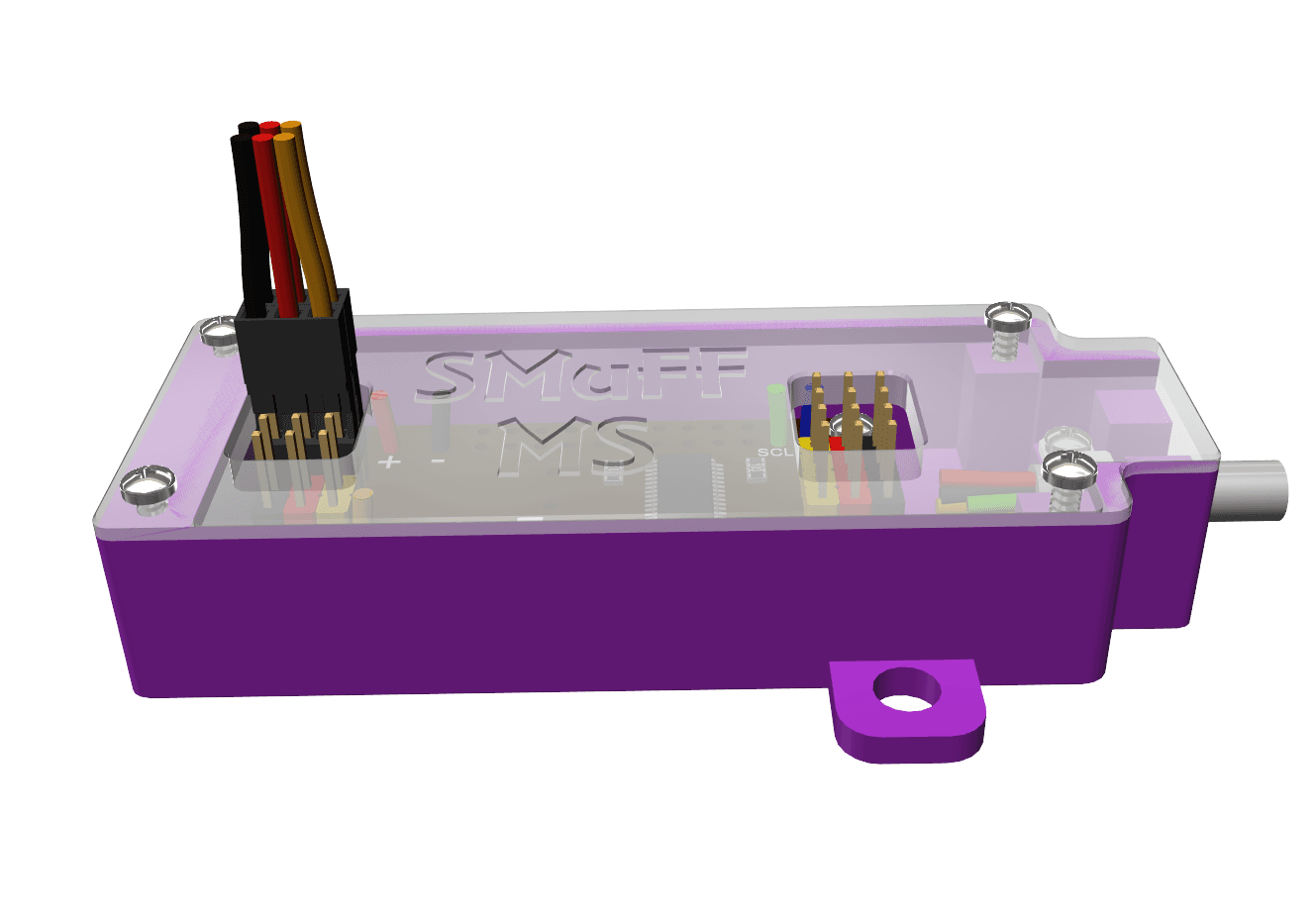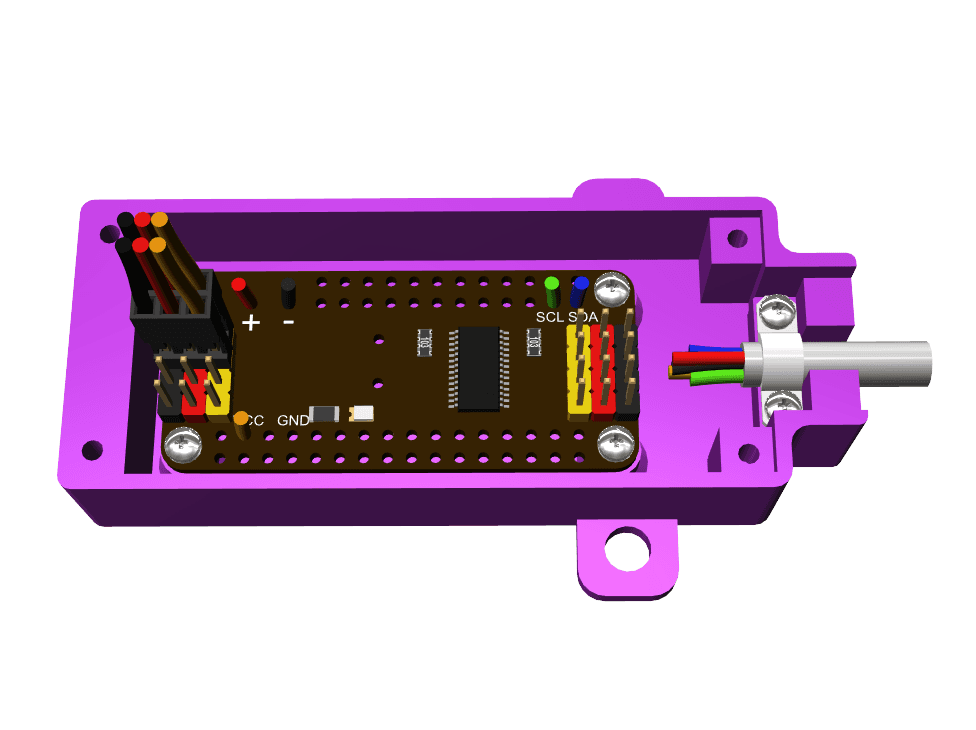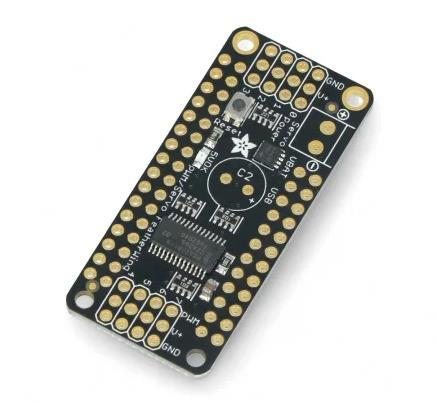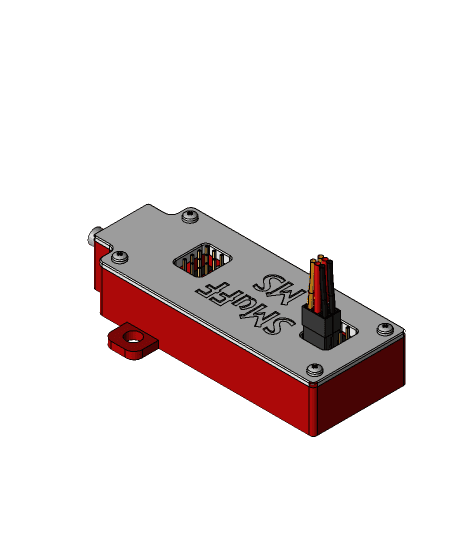This is a housing for the Adafruit Multiservo FeatherWing, which is meant to be used to drive all the servos used on the SMuFF using the Multiservo option but can also be utilized in other projects where you want to drive PWM able devices such as servos or LEDs from a microcontrollers I2C bus interface.
It features the Adafruit Multiservo FeatherWing version, which uses the PCA9685 PWM driver IC to control up to 8 servos/LEDs, in contrast to the bigger Adafruit Multiservo board, which can handle up to 16 devices.
The **PCA9685 **driver IC is an interesting gadget in the microcontroller environment, because it allows you to control up to 16 PWM devices without stressing the MCU and it's timers. PWM means, you can not only attach servos and LEDs but also PWM driven fans, or standard fans if you add a Mosfet to the driver output pin, if you need to.
The IC is controlled via the I2C interface/protocol, which only requires 2 wires for the communication (SDA / SCL). The I2C communication can run on low frequencies, which allows you to use software I2C if you can't use hardware I2C for some reason.
Wiring up the FeatherWing board as an external device is pretty simple, all you need is to provide the communication signals **SDA ** and SCL, GND, +3.3V for the PCA9685 and +5V for the servos. This housing supports either a 6 wire round or a flat ribbon cable.
Please keep in mind: The +5V supply needs to be beefy enough to power all the servos in use. One servo can draw up to 2A of current, depending on the model you use. If you end up using all servos, you'll need an external 5V power supply that delivers enough current and also wires that are able to withstand such a high current flow without getting hot and/or catching fire.
For assembly you'll need 10 2.2 x 6.5mm self tapping screws.
The STL files can be downloaded from Printables.com.



